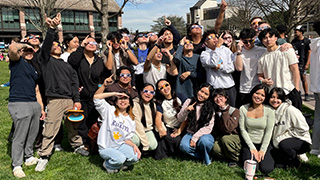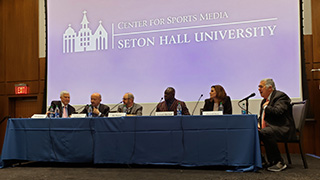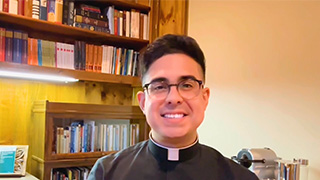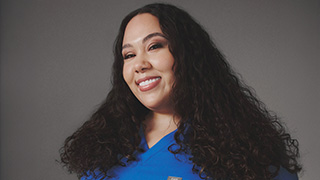SHMS Professor Hosts Leading Bioethics Scholar in COVID Series
Friday, January 13, 2023

Nancy Berlinger, Ph.D.
Bryan Pilkington, Ph.D. recently sat down with Hastings Center Research Scholar Nancy Berlinger, Ph.D., to discuss new work on occupational stress in healthcare in his ongoing COVID Ethics Series podcast.
“In light of all of the challenges facing healthcare workers, many of which have been exacerbated by the pandemic, better understanding stress in healthcare work environments is essential for the ethical treatment of patients and those who care for them,” said Pilkington. He continued, “It was a pleasure to speak with Berlinger, one of the leading bioethicists in the world, and learn more about the work that she and her colleagues are doing on this subject.”
Berlinger is a member of the STEPPS (Study to Examine Physicians’ Pandemic Stress) research team and presented new findings from their work on Pilkington’s podcast. A number of papers are already out, including “Protecting Practitioners in Stressed Systems” which appears in Perspectives in Biology and Medicine and “Hospital Physicians' Perspectives on Occupational Stress During COVID-19: a Qualitative Analysis from Two US Cities” appearing in the Journal of General Internal Medicine. Berlinger summarizes a list of important recommendations from the team’s work in her conversation with Pilkington. “One of the big pushes in the field of bioethics,” said Pilkington, “is the importance of translational work both for its positive practical impact but also to highlight the relevance of the field itself. Berlinger and her colleagues are excellent examples of those doing this kind of work and doing it well.”
“The podcast has been a great addition to our ethics offerings,” noted Pilkington, “We’ve been fortunate to have excellent contributors, like Berlinger, who have expanded the way our students, collaborative partners, and community members think about ethical issues impacting healthcare. Fans of the show will remember Berlinger’s impactful comments in our session on vulnerability.” All of the COVID Ethics Series sessions and podcasts can be found at the IHS Library website; the podcast episodes can be accessed there or via podcast platforms, such as Apple Podcasts and Audible.
In addition to stress and vulnerability, the series has held sessions on racism, human rights, expertise, voting, research, athletics, and resource allocation – all connected to ethical concerns and the pandemic. The series relies on the idea that challenging ethical issues are best addressed by many people, from diverse backgrounds, practically reasoning together, according to its website.
The series has been written about in the popular press, as well as serving as a case study within academic literature, and included in course content. “What has been most rewarding about the continuation of this series is the ethics community that has formed around it. When you hear from colleagues that they build space in their course syllabi for the latest CES content or learn of the impacts that a publishes paper coming out of the CES has had, it reinforces the need for this work to continue,” said Pilkington.
Pilkington, whose research focuses on questions in ethics and bioethics, is an associate professor at Seton Hall’s School of Health and Medical Sciences. He also serves as an adjunct associate professor in the College of Nursing, an affiliated faculty member in the Department of Philosophy, as well as professor of medical sciences at the Hackensack Meridian School of Medicine. Pilkington is creator and moderator of the COVID Ethics Series and author of over 25 peer-reviewed publications on ethics, bioethics and philosophy.
Categories: Health and Medicine





